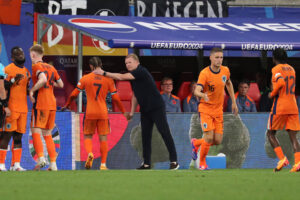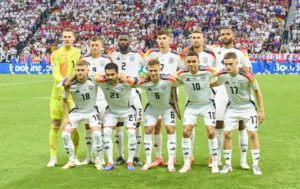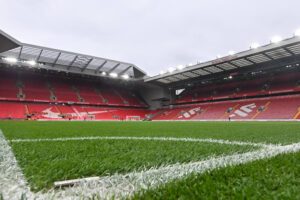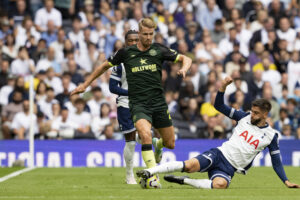Depending on their team’s fortunes, football fans will always be either suspicious or welcoming towards their club’s owner. One point of contention which will always exist regardless of what happens on the pitch, however, is whether owners and stakeholders should have a connection to the football club, or at least some background in the sport. Traditionally, English football teams were owned by local businessmen or families who had grown up as supporters, such as the Hill-Wood family at Arsenal, three generations of whom served as chairman of the North London club. Today, however, many teams are now owned by investors from abroad. Many fans may believe that this has an effect on how these clubs are run. With the recent failed attempt at forming a “European Super League” being spearheaded by the owners of 12 major European clubs, most notably the “Big Six” of the Premier League, it is worth looking at the backgrounds of these Premier League Big Six owners and pondering what effect their life experiences may have on their decision-making.
Premier League Big Six Owners: Football Fans?
Stan Kroenke, Arsenal
Arsenal FC is owned by Kroenke Sports & Entertainment (KSE), which in turn is owned by Stan Kroenke. Born in Missouri in 1947, Kroenke went on to build a business portfolio worth several billion, and is married to Ann Walton, who inherited a stake in the Walmart fortune when her father died in 1995. Kroenke has been the majority owner of Arsenal since 2008.
Through KSE, Kroenke owns a variety of sports teams, including the Denver Nuggets of the National Basketball Association, the Colorado Avalanche of the National Hockey League, and the Los Angeles Rams (formerly the St. Louis Rams) of the National Football League. Kroenke did actually have some experience in Association Football before his time at Arsenal thanks to his ownership of the Colorado Rapids of Major League Soccer.
Kroenke joined the board of directors at Arsenal in 2008, and completed his takeover of the club in 2011. Since he has been involved with the Gunners, he has cut a divisive figure amongst fans, with some blaming him for the teams lack of perceived success due to a lack of ambition and possibly even due to his lack of prior connection to the club itself. This schismatic feeling towards him is in stark contrast with his nickname, ‘Silent Stan’, due to his rarely giving interviews and his tendency towards delegating most of the work involved in owning sports teams.
Roman Abramovich, Chelsea
Although the oil company in which he has a controlling interest, Sibneft, later had a sponsorship deal with CSKA Moscow, Chelsea were (and still are) Roman Abramovich’s sole focus in football ownership. Since he took over as owner in 2003, the club has reached a level of consistent success which was previously unheard of in West London.
Under Abramovich, Chelsea have won five Premier League titles, five FA Cups, three League Cups, two Europa Leagues and, most notably, the Champions League in 2012. This incredible record of silverware means that the majority of Chelsea fans will have no qualms about his previous lack of experience in football or connection to the club, let alone any issues of how he acquired his wealth in the first place.
John W. Henry, Liverpool
John W. Henry owns the Fenway Sports Group (FSG), which owns the Boston Red Sox of Major League Baseball as well as Liverpool FC. Perhaps fortunately for him, when FSG took over Liverpool in 2010 it would have been very difficult for any new owner to become as unpopular as the outgoing Tom Hicks and George Gillett, whose legacy will now be remembered for broken promises, unfulfilled goals, and disappointing results on the pitch. This may have made it easier for him to be welcomed at Anfield due to his previous lack of involvement in football.
In Henry’s time as owner of Liverpool, the club went through a long period of steady improvement, culminating in winning the Champions League in 2018-19 and Premier League in 2019-20. The latter was the club’s first league title in 30 years, and this great success after such a long period of time means that his ownership has been a definite positive. His involvement in the European Super League, however, may sour relationships somewhat for the short-term.
The Glazer Family, Manchester United
The Glazer family first bought shares in Manchester United in 2003, and completed their takeover of the club in 2005. Another American owner of a major English club, the Glazers have always been extremely unpopular with sections of the United fanbase.
Despite the club’s continued success under Sir Alex Ferguson until his retirement in 2013, fans were angered by the manner in which the Glazer family took over the club. This was due to the fact that the family actually had to go into debt to be able to buy Manchester United, a debt which was later split between the family and the club itself. This debt rose from between £265-275 billion to over £712 billion in 2010. Further to this, United have failed to reach the heights that became expected of them since Ferguson left the club, and the reasons for this comparable lack of success have often been levelled at the owners, who had no prior experience in football.
Sheikh Mansour, Manchester City
Although Sheikh Mansour’s sporting background was initially in horse racing, both as a rider and as a supporter of the sport in the United Arab Emirates, his foray into football ownership has yielded both success on the pitch and something of an empire off it.
Since taking over Manchester City in 2008, Mansour has faced plenty of questioning and accusations regarding his actual motive for wanting to own a football club, most notably that Manchester City have become a diplomacy wing of the UAE, used to cover up past human rights abuses. The club itself, however, owned by Mansours’ Abu Dhabi United Group, have gone from strength to strength in a footballing sense. They have won four Premier League titles and countless domestic cups in the last decade, and will be aiming for further success both in England and in the Champions League in the coming years.
Mansour has continued to move further into football ownership, using his City Football Group to purchase Melbourne City FC, New York City FC, and several others. It is clear that he will not be going away from the world of football any time soon, and Manchester City’s continued success means that fans will not hold a grudge against any previous lack of interest in English football.
Joe Lewis, Tottenham Hotspur
The only British majority owner on this list, Joe Lewis and the ENIC Group have also owned shares in Glasgow Rangers, AEK Athens, Vicenza Calcio, FC Basel, and Slavia Prague as well as Spurs. The ENIC Group took over from English businessman Alan Sugar, a Tottenham fan since childhood, and are, like so many other owners, a controversial talking point amongst fans. Joe Lewis himself is a tax exile, living in the Bahamas, who sold his family business in the 1970s and moved into currency trading and speculating thereafter. He profited greatly through currency speculation, especially when he bet on the British pound leaving the European Exchange Rate Mechanism, during which time he teamed up with an entire group of speculators, including. divisive billionaire George Soros.
It is very notable that Tottenham are the only British-owned Premier League Big Six Club, and the fact that ENIC are still so unpopular amongst fans despite prior connections to the club that one would be able to find, unlike in the case of the other five owners featured on this list, shows that sentimentality does not cloud judgement of the ownership’s performance in this case.
Conclusion
The fact that the combined experience in English football of these owners is so small may give insight into why some of their decisions over the years have been at odds with what fans want. Football fans in England, Europe, and the world as a whole are less bothered by money and business plans than they are about winning, identity, and a sense of belonging to their club. Having owners who do not understand this (or feel any need to try to understand this) will always be frustrating for fans, and may explain why decisions like the European Super League, which was never going to be met with agreement, are able to get past the early discussion stages. This problem will continue to pervade football for much of the foreseeable future, especially at these six clubs.
Main image credit:
Embed from Getty Images






